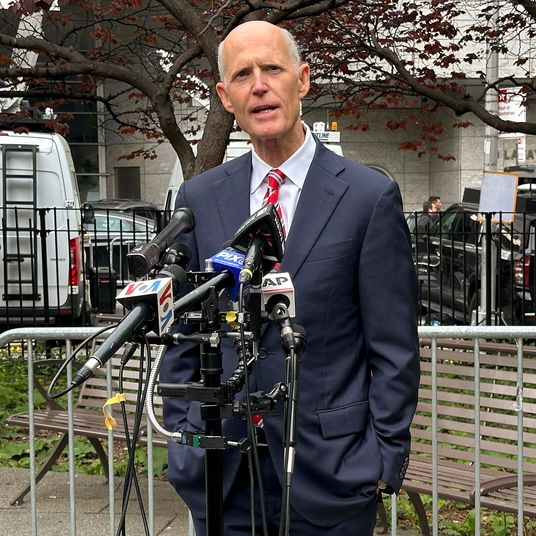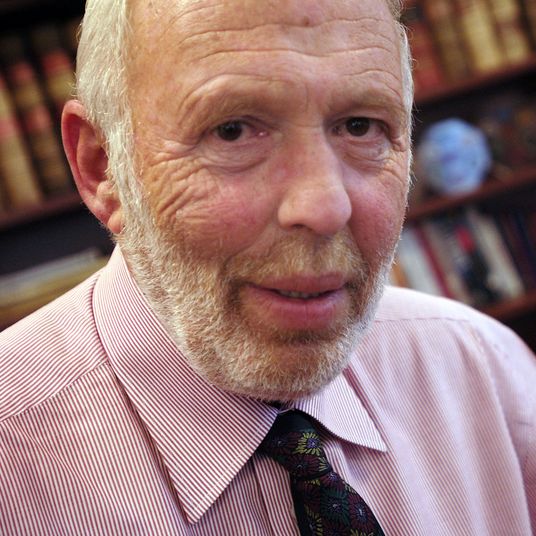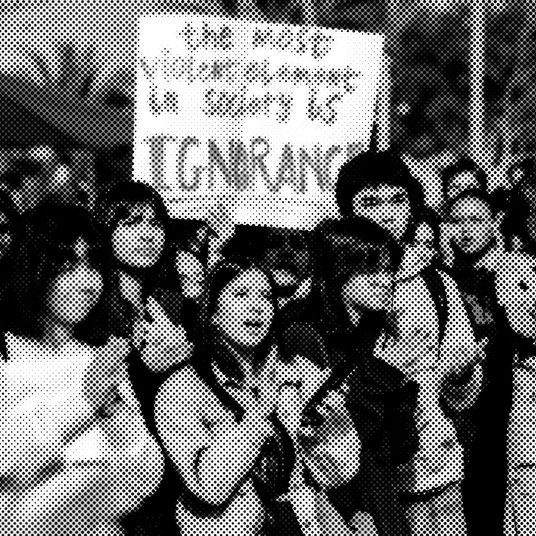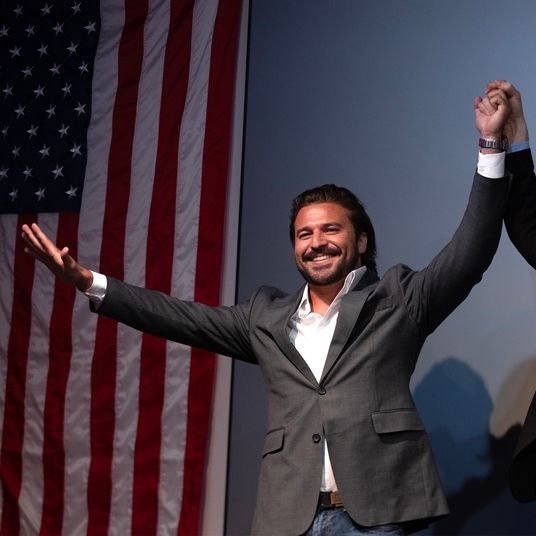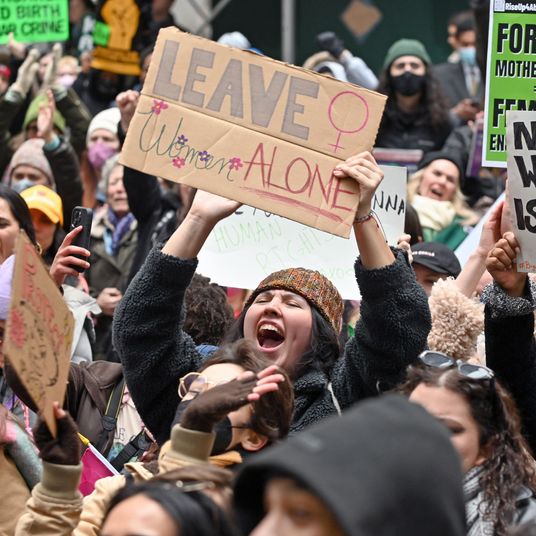
On September 3, Cynthia Hughes, founder of the Patriot Freedom project, regaled the crowd at Donald Trump’s “Save America” rally in Wilkes-Barre, Pennsylvania, with the plight of her nephew, Tim Hale-Cusanelli. Poor Tim, who once served in the Navy, had been convicted for his role in the January 6 insurrection. The story of his “mistreatment” drew moans from the sympathetic audience.
Hughes did not mention that Navy investigators found 34 former colleagues who reported that Hale-Cusanelli had expressed “extremist or radical views pertaining to the Jewish people, minorities, and women.” One recollected Hale-Cusanelli’s practice of asking new colleagues if they were Jewish. Another remembered him saying Jews “are ruining everything and did not belong here,” and yet another recalled him saying, “Hitler should have finished the job.” Hale-Cusanelli has been photographed wearing a distinctive Hitlerian mustache. His passion for genocidal antisemitism developed into a passion for a right-wing putsch attempt, and now he has become essentially a martyr figure championed by the Republican Party’s leader.
Trump’s rise has reshaped the GOP, driving out some of its constituent elements while bringing in previously excluded factions, the ranks of which include virulent antisemites. The lessons of Hitler’s Germany have been badly overapplied, so it is important to contextualize these events carefully. The GOP may not be an antisemitic party. Indeed, it has managed to maintain a big tent that includes both Jewish ultrahawks like Miriam Adelson and their most paranoid enemies. Nevertheless, it has become a party in which antisemitism has gained a foothold. No recent development in American life has done more to throw American Jews’ safety and civic equality into doubt.
In the early-20th century, contempt for Jewish immigrants was an important tributary in the stream of reactionary politics. Antisemitism reached a peak during the Great Depression, when right-wing populists like Charles Lindbergh depicted the Roosevelt administration as beholden to the Jews. The aviator’s “America First” movement characterized Jewish support for hawkish measures against Nazi Germany as evidence of disloyalty.
The war and the Holocaust discredited antisemitism, and it largely disappeared from mainstream circulation. When Pat Buchanan ran for president in 1992 and 1996, he revived both the slogan and many of the ideas of the “America First” movement and produced an enthusiastic reception. But his antisemitic innuendo and creepy enthusiasm for the procedural rights of elderly former Nazi camp guards made him toxic to the party Establishment. (“I find it impossible to defend Pat Buchanan against the charge that what he did and said during the period under examination amounted to antisemitism,” concluded William F. Buckley.) Buchanan was forced out of the party altogether. By the first decade of the 21st century, antisemitic theories were more likely to be used against the Bush administration — whose more conspiratorial critics saw the hidden hand of international Jewry behind its bungled Iraq invasion — than on behalf of any Republican cause.
Trump resurrected Buchanan’s strain of populist nationalism. He’s always nurtured business relations and personal ties with Jewish people, but his revival of “America First” — both the slogan and the ideas surrounding it — inevitably excited antisemites. In 2016, he tweeted out an image using a Star of David to symbolize Hillary Clinton’s “corruption.” The Trump campaign tweeted an altered version after an outcry but then ran an ad in the campaign’s closing days decrying “a global power structure that is responsible for the economic decisions that have robbed our working class, stripped our country of its wealth and put that money into the pockets of a handful of large corporations and political entities” coupled with images of Janet Yellen, George Soros, and Lloyd Blankfein — all of whom are financial figures who happen to be Jewish.
Trump attacked his critics as a cabal of “globalists” and fixated on the secret powers exerted by Soros, who has displaced (or in some cases joined) the Rothschilds in the imagined role of secret Jewish financier orchestrating a series of catastrophes for profit. The explosion of militant paranoia that followed Trump’s rise — from the Oath Keepers to QAnon — has appeared both online and in the real world with occasionally deadly consequences in places like Charlottesville and Pittsburgh. Although much of this activity has taken place outside the party system, the energies on the right have crept into the Republican Party.
Two years before her 2020 election to Congress, Marjorie Taylor Greene shared a video claiming “an unholy alliance of leftists, capitalists, and Zionist supremacists has schemed to promote immigration and miscegenation with the deliberate aim of breeding us out of existence in our own homelands.” More famously, she wondered whether the Rothschilds had used space lasers to start a series of forest fires in California to clear public land for a rail network.
Christina Pushaw, a spokesperson for Ron DeSantis, linked a decision by the nation of Georgia to join several European countries in implementing COVID passes to what she viewed as a suspiciously timed visit by a Rothschild: “Immediately after that the Rothschilds show up to discuss the attractive investment environment in Georgia (lol),” she noted.
In Pennsylvania, Doug Mastriano, the GOP nominee for governor, paid the ultraright-wing social-media site Gab to promote his candidacy, which has articulated Christian-nationalist themes. Gab’s chief executive, Andrew Torba, is an explicit antisemite who has promoted Mastriano as a fellow enemy of the Jews. “We don’t want people who are Jewish,” Torba explained.
After reporters questioned their relationship, Mastriano released a statement that renounced antisemitism and said Torba does not speak on his behalf but failed to call him an antisemite or to forgo his support. And while a handful of Pennsylvania Republicans have endorsed Mastriano’s Democratic opponent, the vast majority of the party apparatus has either supported Mastriano or stayed quiet. Conservative media has ignored the issue. Meanwhile, the Wyoming Republican Party recently encouraged people to follow it on Gab, calling it “an awesome platform.”
Before Trump came along, antisemites had little investment in American politics. His rhetoric articulates themes they recognize as compatible with their own, and he has given them a reason to marshal their energies on behalf of one side in a two-party system from which they had been excluded.
There is a simple test to measure their influence. If antisemites were too marginal to pose any danger, it would be easy enough for the party to cut them off. (If you want to know what it looks like when Republicans decide to really throw somebody out of their party, look at their treatment of Liz Cheney.) Instead, they vacillate. House Minority Leader Kevin McCarthy declined to comment on Gosar’s attendance at white nationalist Nick Fuentes’s conference. McCarthy has likewise promised to restore Greene’s committee privileges if Republicans regain the majority.
Prosecutors have found that Trump’s January 6 rally attracted a significant number of people who share Hitler quotes, hold membership in neo-Nazi organizations, have a fixation with “white genocide,” and the like, making the party leadership’s desire to sweep the whole thing under the rug all the more dangerous. Whatever misgivings the remaining old-line Republicans may have toward the militant cadres Trump inspired, Republicans fear their political and even terroristic power. They no longer imagine they have the gatekeeping force to exclude the antisemites, less still to steer the party away from the kind of paranoid rhetoric that invites their participation.
The GOP’s overriding goal is to win, and it has decided this means accepting the support of anybody who will provide it. For three-quarters of a century, antisemites were locked out of major American politics or at least had to keep their bigotry quiet. Now the door is open.









